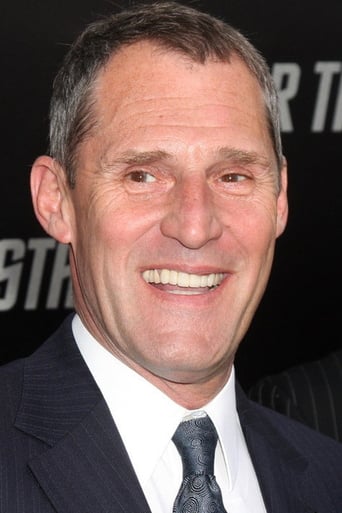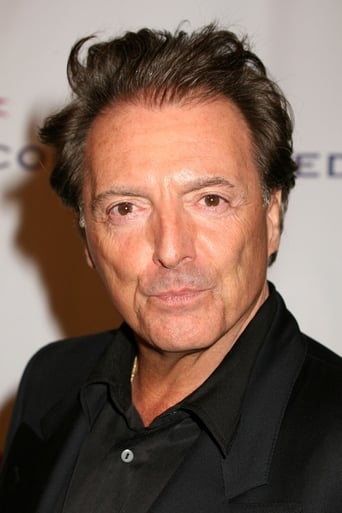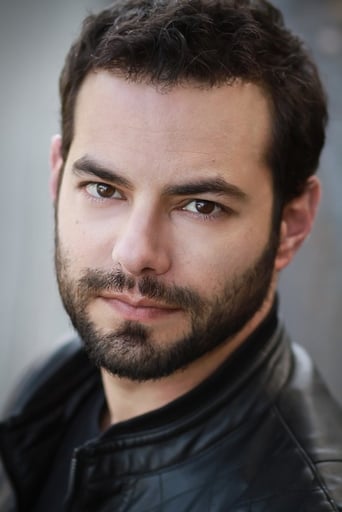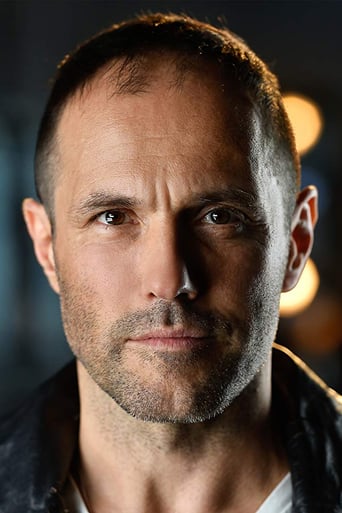Crwthod
A lot more amusing than I thought it would be.
AnhartLinkin
This story has more twists and turns than a second-rate soap opera.
Cooktopi
The acting in this movie is really good.
Janis
One of the most extraordinary films you will see this year. Take that as you want.
Kirpianuscus
adaptation of a book who gives more ideas than scenes. opportunity for Armand Assante to give a role who is far to be easy for the melodramatic way imposed by script. short, a nice try to give a story who has special beauty. the only sin - for this hard work , the director has not the right tools. and this did the film decent if you ignore the not reasonable tone from few scenes. "When Nietzsche wept" is the genre of book perfect for read it and not imagine versions of adaptation. this is the explanation for the sins of the film - the desire to say what only the silence gives.
rooprect
This movie is surreal. Literally, it has a lot of surrealistic scenes to mess with your mind, but also the whole presentation is surreal because there are so many bizarre angles. At its heart, it's a sober portrayal of depression and humanity's discontent (so you'd think it would be slow & heavy). But mostly it's humorous, at times as silly as the movie "Airplane!". It also features historical references, but you can't help feeling that the writer is being deliberately playful, distorting facts right before our eyes with a wink and a smile. In all, I think it's an entertaining experience, especially if you don't take it too seriously.It definitely has the qualities of a period piece romp, like maybe "Casanova" (2005), "Molière" (2007) or one of my faves, "Impromptu" (1991) about Chopin. But "When Neitzsche Wept" has a more subtle tone which prevents me from saying it's intended to be a comedy like the others I mentioned. Also, don't expect a biopic because it's not really about any particular man so much as it's about everyman's internal struggle between passion (freedom) and logic (duty).This film takes a somewhat light-hearted approach to a very dark subject, and I think that's what makes it unusual and clever. It's entertaining and digestible, but also there are a few powerful monologues delivered by Neitzsche (Armand Assante) that I had to rewind and hear again because they seemed to appear out of nowhere. Then suddenly we're back to a crazy scene of a redhead woman in diapers jumping around a crib. Don't worry, it all makes sense; it's just... surreal!
landgabriel
Contrary to what another reviewer asserted, I think the dream sequences only add to what would have otherwise been a well constructed, if by the numbers, film.I like fantastic visual elements in films, and here they contrast nicely with the realism of historical Vienna locations and period costumes.The script is not historical per se, but it does touch upon some historical realities such as the influence Nietzsche had upon Freud.I gave it 8 stars because a couple of the accents were atrocious, and in parts it seemed like the lighting and color correction were not as even as they could be.Nevertheless, I found this gem among the most watchable of the films that have landed in my que as of late.
tfujimot
This probably one of the few popular culture references to Freud in which he is a minute character amongst other characters. Freud is essentially stripped of his typical authority in this role, which is an interesting parallel given that Nietzsche strips Breuer of his authority. I cannot help but wonder if some of the negative reviews done by Psychology professionals come from the fact that this story is a depiction of the authority and power being taken from the designated 'therapist'? This film focuses Josef Breuer, a relatively quiet figure in early psychological history. Parts of the film are a bit melodramatic, but I thought the storyline made up for that. Perhaps what was most fascinating and true was that it touched on the fact that one does not have to be a "professional,"to be a great analyst, but someone who has lived, truly looking at the human condition we all face, but often choose to ignore. It also touches on the psychological work that occurs not only for the patient,but also for the Analyst during the work. The dream sequences were very interesting and creatively done. It is most interesting reading all of the comments while thinking about my own experience of the movie. I did not think the accents were that bad (and I've actually been to Austria as well as Switzerland). However accents or lack thereof do not typically ruin a film for me. Perhaps I would not care for it if I had read a lot of Nietzsche or the book the film was based on, but I did not. So there!




